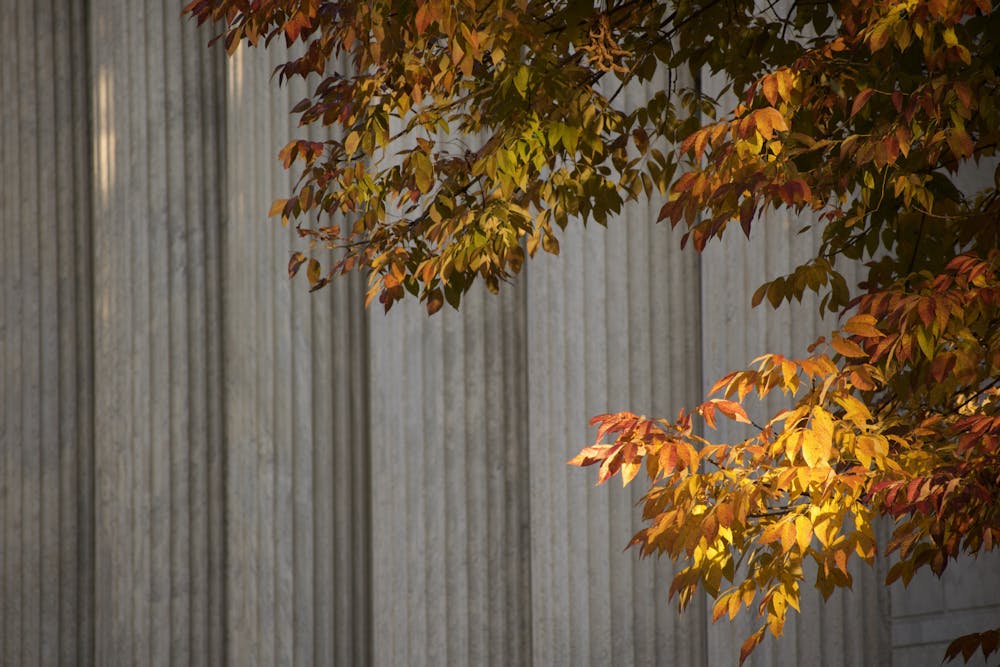The Trump administration and its lackeys have used the recent assassination of far-right activist Charlie Kirk to hide its own suppression of free speech.
But conservatives, nationally and at Princeton, are crying wolf. The death of Kirk is not symptomatic of some leftist guerrilla psyop. American political violence has long been a tool of the right, and the attempt to pin Kirk’s assassination on the left is symptomatic of the real free speech problem at Princeton: dishonesty. Members of the campus right have misrepresented the status of free speech on campus, drawing on a few isolated incidents to paint themselves as the real victims in the debate.
In the last week, op-eds published in this paper have reopened the circular and mutually accusatory investigation into whose speech is freer: liberals’ or conservatives’?
Siyeon Lee ’27 and Charlie Yale ’28, both Opinion editors at The Daily Princetonian, criticize alumni groups like Princetonians for Free Speech (PFS) for “publishing a letter to all first years in a journal that only appeals to a select few on this campus.” But I reject the implication that conservatives are not interested in engaging with the greater Princeton community through mainstream channels. Having once served as the Community Opinion editor for the ‘Prince’, I personally edited and helped publish countless pieces written by members of PFS and The Princeton Tory.
In fact, it is the hypervisibility of conservative voices in this paper, national media outlets, and several free speech groups — like PFS and the Princeton Open Campus Coalition — that support the conclusion that there is no de jure curtailing of conservative speech at Princeton. As Lee and Yale point out, “the people on our campus currently facing the most tangible threats to free speech are not disaffected conservatives,” but international and undocumented students facing visa revocations for their speech.
Zach Gardner ’26, publisher of The Tory, and Maximillian Meyer ’27 assert in separate opinions that campus culture has cultivated an antagonistic, hostile approach to conservatives. But neither Gardner nor Meyer produces anything more substantive than one-off anecdotes of opposition — almost all of which are examples of protected speech — to diagnose the University with its supposed cultural free expression problem. Gardner laments Fizz posts that express, albeit condescendingly, different opinions from his own. Meyer rebukes students for not “[recognizing] ideological opponents as worthy of dialogue,” but cites just one example of students being understandably reluctant to engage in a controversial discussion with a campus figure prominent in conservative media.
Most Princeton students are not hateful towards conservatives. Many of them remain apathetic about major political issues, and I find that those who do care are generally able to conduct themselves civilly. Gardner’s and Meyer’s disapproval of anonymous commenters is in no way representative of poisonous political discourse. Unable to substantiate the myth of their oppression, conservatives have resorted to making Charlie Kirk their martyr.
Kirk will be remembered by many as a racist, sexist, homophobe, Islamophobe, and xenophobe who thrived on sensationalism. He disgracefully denied the separation of church and state, and was a champion of white supremacist replacement theory.

And there is no denial that Kirk died for his speech. Tyler Robinson, Kirk’s alleged murderer, confessed his motivations in a text message, writing that “there is too much evil and [Kirk] spreads too much hate,” according to the court documents.
But Kirk’s death is an extremely rare example of leftist political violence. A 2024 National Institute of Justice study — once promoted by the Department of Justice until it was removed in the days following Kirk’s assassination — concluded, “[T]he number of far-right attacks continues to outpace all other types of terrorism and domestic violent extremism.”
So, when Meyer asks, “Where do we go when to be a conservative speaker on a college campus is to put oneself at risk of a bullet?” he poses a question that grossly misrepresents the current political moment. Kirk’s position as an eminent and controversial political figure who traveled nationally from campus to campus antagonizing thousands of students in no way resembles that of the average right-wing student — especially not on a campus as protective of speech as our own — nor that of the average right-wing American.
It is conservative Americans who police social media, shaming users who do not misremember Kirk’s legacy. It is members of the Trump Administration who have openly called for the suppression and criminalization of expression they find disagreeable. And it is campus conservatives’ revisionism that serves as the very blueprint for this censorship of liberal voices.

Gardner hopes that Kirk’s death will inspire us to see each other as “brothers and sisters.” Meyer calls upon us to “honor the ideals for which Charlie Kirk stood … by speaking, building, advocating, and leading.” I agree that Princetonians should respect one another. But propping up Kirk as the paradigmatic example is dishonest whitewashing of his divisive stances, and reflective of a fear of oppression that simply does not exist.
Christofer Robles is the Editorial Board Chair for the 149th Board. He can be reached at cdrobles[at]princeton.edu.
Correction: An earlier version of this piece quoted Meyer as writing “honor the ideals for which Charlie Kirk stook for.” In fact, Meyer wrote “honor the ideals for which Charlie Kirk stood ... ” The ‘Prince’ regrets this error.








